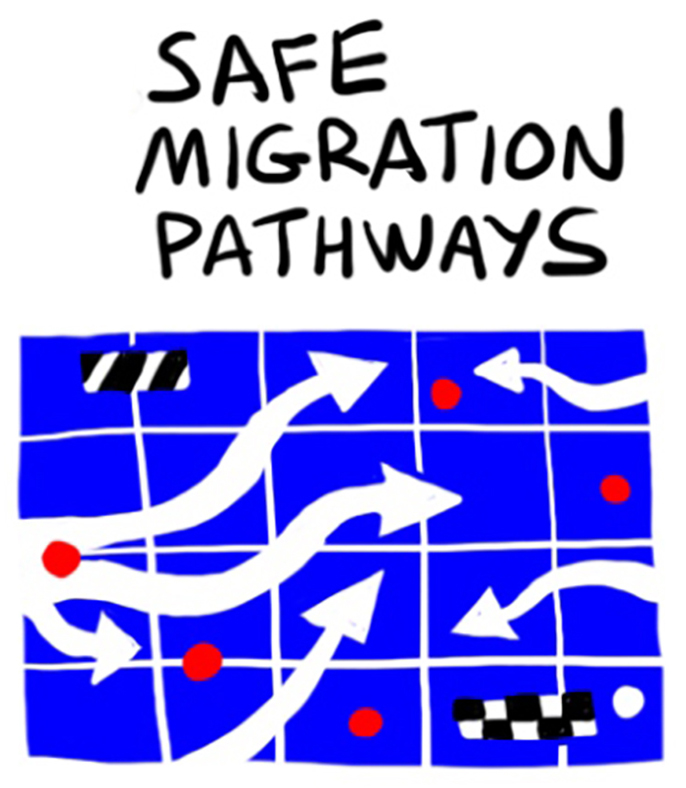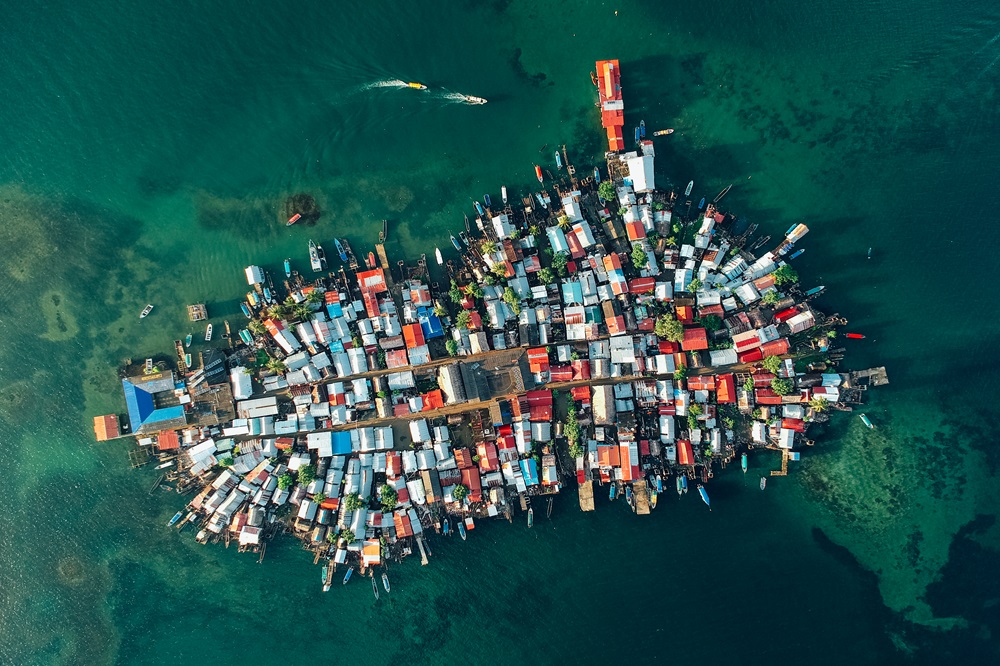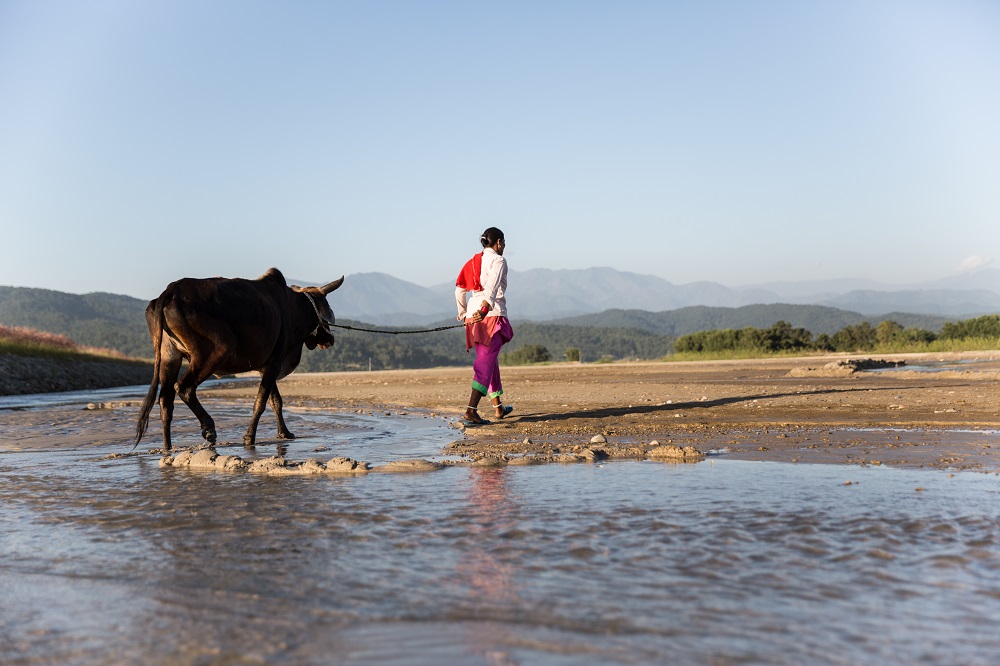
The PDD operates in a complex policy context. with a focus on promoting and implementing existing policy, standards and laws. This is done through collaboration across global, regional, and national levels to address displacement in the context of disasters, climate change, and environmental degradation. The PDD concentrates on frameworks that protect displaced people and reduce displacement risks by helping people stay, move out of harm’s way, and find durable solutions. Various policy areas, such as climate change, disaster risk reduction, and human mobility, now consider disaster displacement. However, there are challenges in implementing and coordinating across these policies and action areas effectively.
Creating synergies across policy areas can help achieve more effective outcomes; strengthen the resilience and adaptive capacity of countries and communities (e.g. development of integrated disaster risk reduction and climate change adaptation strategies and plans addressing human mobility challenges, at the national level) ; improve the link between humanitarian and development efforts at the multilateral level; and facilitate addressing the longer-term developmental challenges to strengthen the resilience of affected communities and find durable solutions to displacement.
Our policy work focuses on processes and frameworks that address the protection needs of those displaced. Another aim is to prevent or reduce displacement by managing displacement risks through measures helping people to stay or move out of harm’s way. In addition to supporting advocacy efforts with partners, the Platform also seeks to ensure that commitments are followed through with technical assistance and advice, capacity building support and resources [see regional section].
The State-led character of the PDD allows for targeted and coordinated global advocacy on disaster displacement across relevant policy and action areas to promote policy coherence and ensure that global and regional commitments to prevent, reduce and address disaster displacement remain high on the international agenda, in a context of broad and ambitious goals and competing priorities. We continue to support such advocacy efforts with partners and seek to ensure that commitments are followed through.
What does this look like?
Climate Change and the United Nations Framework Convention on Climate Change (UNFCCC)
The PDD has been engaging in the United Nations Framework Convention (UNFCCC) processes since the Platform was established in 2016 and the Secretariat is a member of the Task Force on Displacement (TFD). At COP24, in Poland in 2018, the TFD concluded its mandate delivering a set of recommendations for integrated approaches to avert, minimize and address displacement related to the adverse impacts of climate change, which were welcomed by COP24. At the successful delivery of the recommendations, the WIM ExCom extended the mandate of the TFD to continue its work on human mobility. Since then, the PDD has contributed to the roll out of these recommendations and continued to contribute to the establishment of a more effective Loss and Damage support architecture, including through advocacy at all subsequent COPs.
Disaster Risk Reduction and the Sendai Framework for Disaster Risk Reduction 2015-2030
In 2015, the Sendai Framework for Disaster Risk Reduction recognized disaster displacement as an important concern. Since then, the Platform has been working to make sure disaster displacement is included in disaster risk reduction strategies at the national and regional level. The PDD conducts and disseminates research, supports tool development and capacity building and engages at regional and global platforms for disaster risk reduction.

Human Mobility (Displacement and Migration) under the Global Compacts for Migration and on Refugees, and the United Nations Secretary-General’s Action Agenda on Internal Displacement
The Global Compact for Migration (GCM), adopted in 2018, articulates a common set of commitments related to international migration response. The GCM recognizes climate change, disasters and environmental degradation as drivers of migration and seeks to address the root causes of migration. The Nansen Initiative Protection Agenda and the PDD are explicitly mentioned under Objective 2 as pertinent for the development of coherent approaches to human mobility in the context of disasters and adverse effects of climate change. Objective 5 on enhancing availability and flexibility of pathways for regular migration is also highly relevant for those displaced across borders. It calls on States to develop and use practices such as humanitarian visa or temporary work permits for persons displaced by sudden-onset disasters, and planned relocation or visa options for those crossing borders due to slow onset events. Together, these provisions outline a vision of what needs to be done, and a basis for concrete action at domestic, regional and international levels. The PDD continues to engage in the United Nations Migration Network and the International Migration Review Forum.
The Global Compact on Refugees (GCR) was adopted in 2018 and recognizes that although people displaced in the context of climate change, disasters and environmental degradation do not qualify for refugee status, persecution may occur in disaster contexts, or human rights norms may prohibit forcible return to affected countries. The PDD encourages States to consider when refugee and human rights law can apply to address disaster displacement and to utilize humanitarian protection measures.
The number of internally displaced persons (IDPs), as well as the projections of future disaster displacements, suggest that there are gaps in capacity to prepare for and respond to internal disaster displacement. The Platform is working to mainstream disaster and climate-related displacement into discussions on IDPs and to support the implementation of the United Nations Secretary-General’s Action Agenda on Internal Displacement.
Illustrations by Josh Knowles






